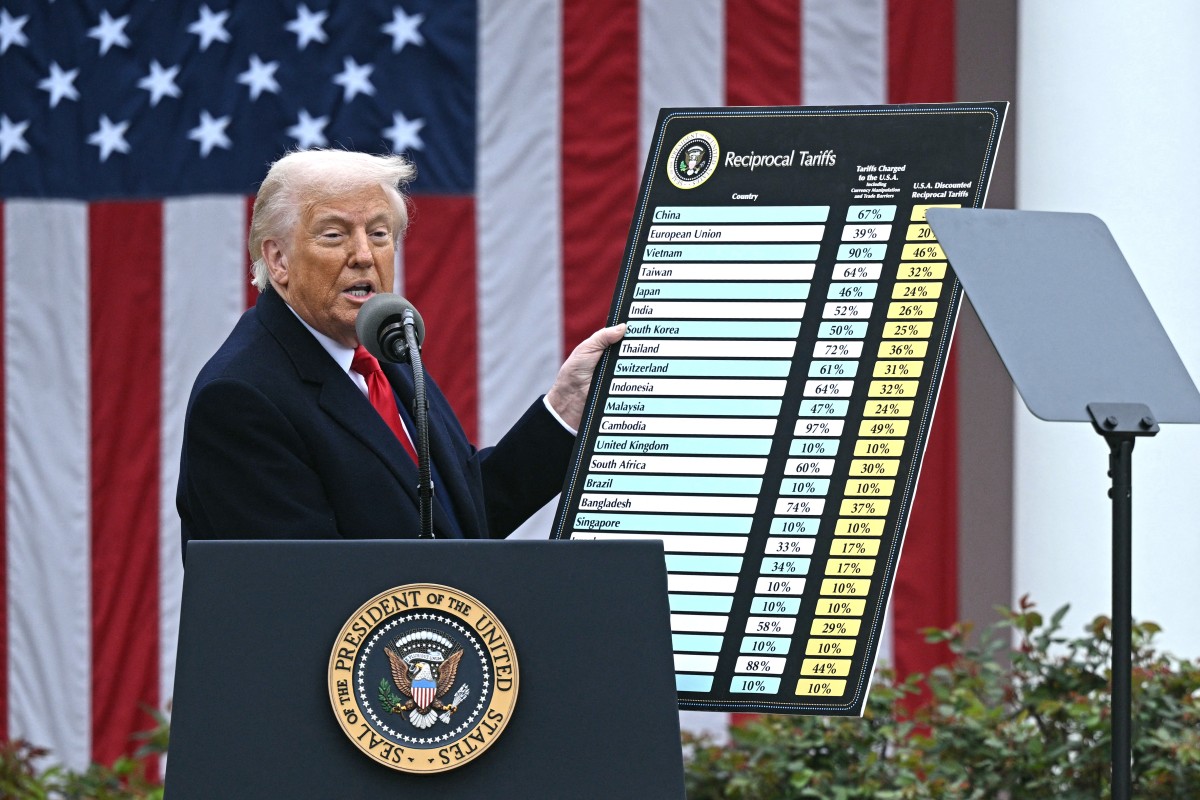
By Agence France-Presse
A United States federal court blocked most of President Donald Trump’s sweeping tariffs from going into effect, boosting markets on Thursday even as the White House appealed against the decision by “unelected judges”.
The opinion marks a significant setback to Trump as he bids to redraw the U.S. trading relationship with the world by forcing governments to the negotiating table through tough new tariffs.
Trump’s global trade war has roiled financial markets with a stop-start rollout of import levies aimed at punishing economies that sell more to the U.S. than they buy.
Trump argued that the resulting trade deficits and the threat posed by the influx of drugs constituted a “national emergency” that justified widespread tariffs.
But the three-judge Court of International Trade ruled Wednesday that Trump had overstepped his authority, barring most of the duties announced since he took office in January.
The White House slammed the ruling, arguing that “unelected judges” have no right to weigh in on Trump’s handling of the issue.
“President Trump pledged to put America first, and the administration is committed to using every lever of executive power to address this crisis and restore American greatness,” Trump’s spokesperson Kush Desai said.
Attorneys for the Trump administration promptly filed to appeal against the ruling Wednesday.
China: ‘Cancel wrongful tariffs’
The ruling comes as Trump has used the tariffs as leverage in trade negotiations with friends and foes, including the European Union and China.
Beijing—which was hit by 145% tariffs before they were sharply reduced to give space for negotiations—reacted to the court ruling by saying the U.S. should scrap the levies.
“China urges the United States to heed the rational voices from the international community and domestic stakeholders and fully cancel the wrongful unilateral tariff measures,” said commerce ministry spokesperson He Yongqian.
Japan’s tariffs envoy, Ryosei Akazawa, said as he left for a fourth round of talks in Washington that Tokyo—reeling from tariffs on cars—would study the ruling.
Trump unveiled sweeping import duties on nearly all trading partners on April 2, at a baseline of 10%, plus steeper levies on dozens of economies, including China and the EU.
The ruling also quashes duties that Trump imposed on Canada, Mexico, and China separately using emergency powers.
Some of the turmoil was calmed after he paused the larger tariffs for 90 days and suspended other duties, pending negotiations with individual countries and blocs.
Asian markets rallied on Thursday and U.S. futures pointed to early gains, but Europe was mixed, with London in the red while Paris and Frankfurt rose.
The ruling “throws into disarray several trade deals that have already been agreed, and those that are still in the negotiation phase,” said Kathleen Brooks, research director at XTB brokerage firm.
‘Extraordinary threat’
The federal trade court was ruling in two separate cases—brought by businesses and a coalition of state governments—arguing that the President had violated Congress’ power of the purse.
“The question in the two cases before the court is whether the International Emergency Economic Powers Act of 1977 delegates these powers to the President in the form of authority to impose unlimited tariffs on goods from nearly every country in the world,” the three-judge panel wrote in an unsigned opinion.
“The court does not read IEEPA to confer such unbounded authority and sets aside the challenged tariffs imposed thereunder.”
The judges stated that any interpretation of the IEEPA that “delegates unlimited tariff authority is unconstitutional.”
The IEEPA authorizes the president to impose necessary economic sanctions during an emergency “to combat an unusual and extraordinary threat,” the bench said.
The ruling gave the White House 10 days to complete the bureaucratic process of halting the tariffs.
Gregory Meeks, the top Democrat on the House Foreign Affairs Committee, said the ruling confirmed that “these tariffs are an illegal abuse of executive power.”
“Trump’s declaration of a bogus national emergency to justify his global trade war was an absurd and unlawful use of IEEPA,” he said.
White House aide Stephen Miller took to social media to decry a “judicial coup” that he said was “out of control.”
